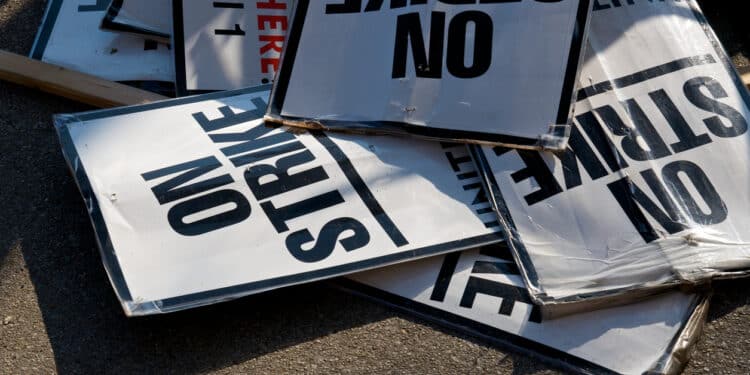The Protecting the Right to Organize Act of 2021 (PRO Act), which passed the House of Representatives in March 2021, has been described as “the most significant labor law reform in the United States since the World War II-era Taft-Hartley Act.” The bill, which has been stalled in the Senate for over a year, contains provisions increasing whistleblower protections for workers. The National Whistleblower Center (NWC) is calling upon the Senate to act swiftly and pass the bill.
In conjunction with an article outlining the importance of the PRO Act, NWC has launched an action alert allowing individuals to call on the Senate Committee on Health, Education, Labor, and Pensions (HELP) to approve the PRO Act. The Act was referred to the Help Committee on March 11, 2021 but has yet to be reviewed by the committee.
“National Whistleblower Center supports the passage of these essential whistleblower protections,” the action alert states. “Stopping retaliation, increasing transparency, and creating clear guidelines supports whistleblowers and prevents illegal activity. Combined, these practices promote market health and support the interests of the public, consumers, and concerned citizens.”
Section 202 of the PRO Act amends the Labor Management Reporting and Disclosure Act of 1959 (LMRDA), a landmark labor law which established a bill of rights for members of labor organizations, to include whistleblower protections. The new provisions prohibit employers or labor organizations from terminating or any other way discriminating against an employee who reports possible violations of the LMRDA. Under the new amendments, employees and former employees are protected when disclosing information about LMRDA violations to their employer, labor organization, the Department of Labor, “or any other State, local, or Federal Government authority or law enforcement agency.”
Under the PRO Act’s amendments, an individual who faces retaliation for disclosing a violation of the LMRDA may file a complaint with the Secretary of Labor within 180 days of the retaliatory act. The Department of Labor will then investigate the allegations. Under the PRO Act, the burden of proof would fall upon the whistleblower, meaning that the whistleblower must prove that their disclosure was a “contributing factor” in the retaliatory action. After the Secretary of Labor issues a preliminary order on the case, either the whistleblower or the defendant may file an appeal. An appeal would lead to a hearing in front of an administrative law judge and within 120 days of the hearing, the Secretary of Labor would issue a final decision on the case.
In instances where a whistleblower’s complaint is successful, the PRO Act outlines a variety of relief that could be granted to the whistleblower. This includes reinstatement, back pay with interest, compensatory damages, and the expungement of all warnings, reprimands, or derogatory references made in response to the whistleblower’s protected disclosure.
In instances where the Secretary of Labor rules against the whistleblower or does not issue a final order within 270 days of the whistleblower’s complaint, the PRO Act allows whistleblowers to “bring an action at law or equity for de novo review in the appropriate district court of the United States.” Whistleblower advocates view de novo review provisions as key elements of strong whistleblower legislation.
Read:
NWC Sunday Read: PRO Act Whistleblowers


